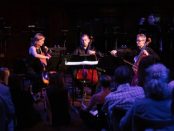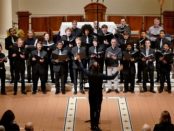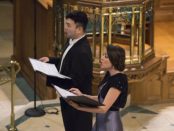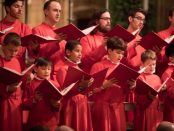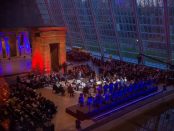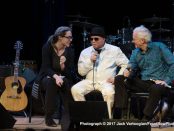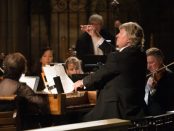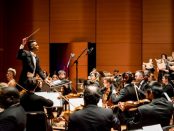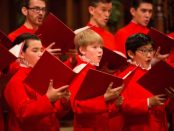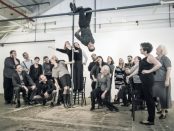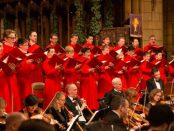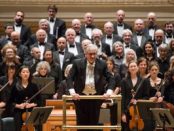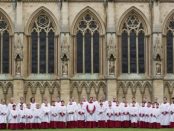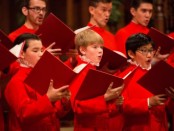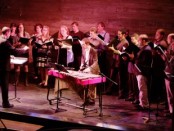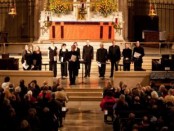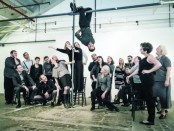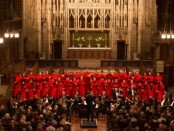The Crossing: Of Arms and the Man
Nally’s extensive program notes provided insights on the program, whose title comes from the opening line of Virgil’s "Aeneid," “Arma virumque cano” … “I sing of arms and the man.” Nally juxtaposes the Roman epic with Lawrence Ferlinghetti’s 1976 “call to poets” and notes the presence of rage as a human impulse that links Aeneas’ war stories with the contemporary United States. Various choral pieces in the program by contemporary composers as diverse as David Lang, Gabriel Jackson, Suzanne Giraud and Sebastian Currier addressed themes such as grief, awe, reverence, hope and anger. The pieces were typically a cappella, but three marvelous cellists – Alexander Hersh, Arlen Hlusko and Thomas Mesa – provided linking music between works. [more]

